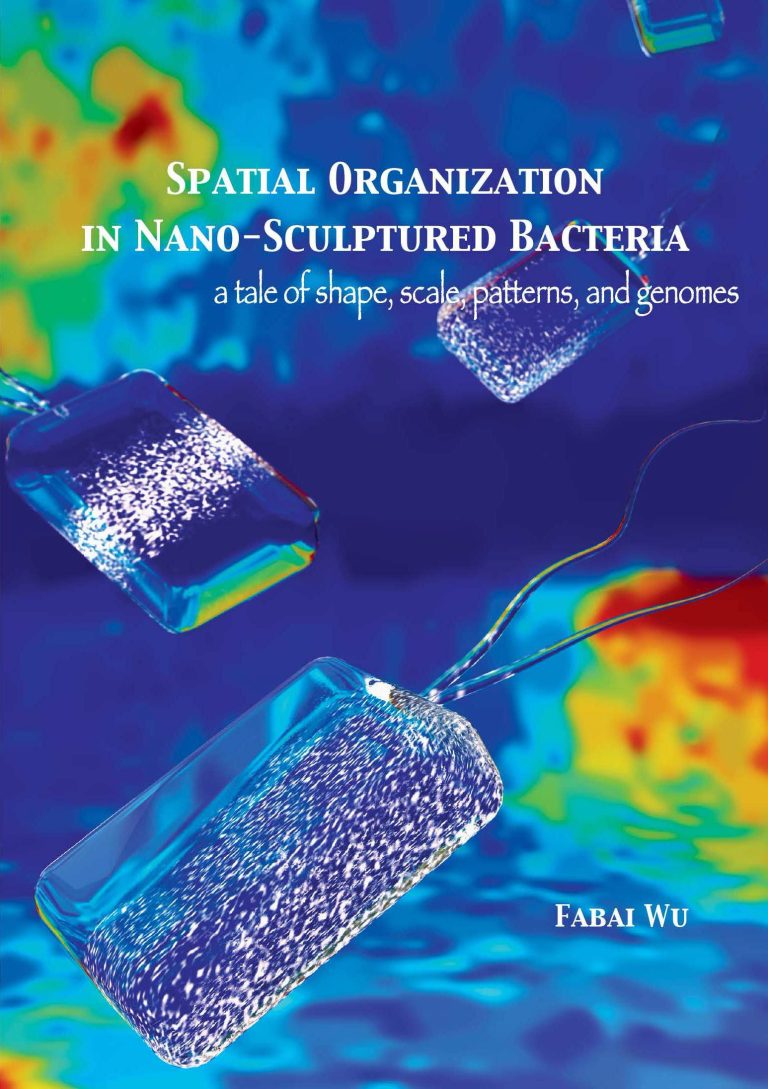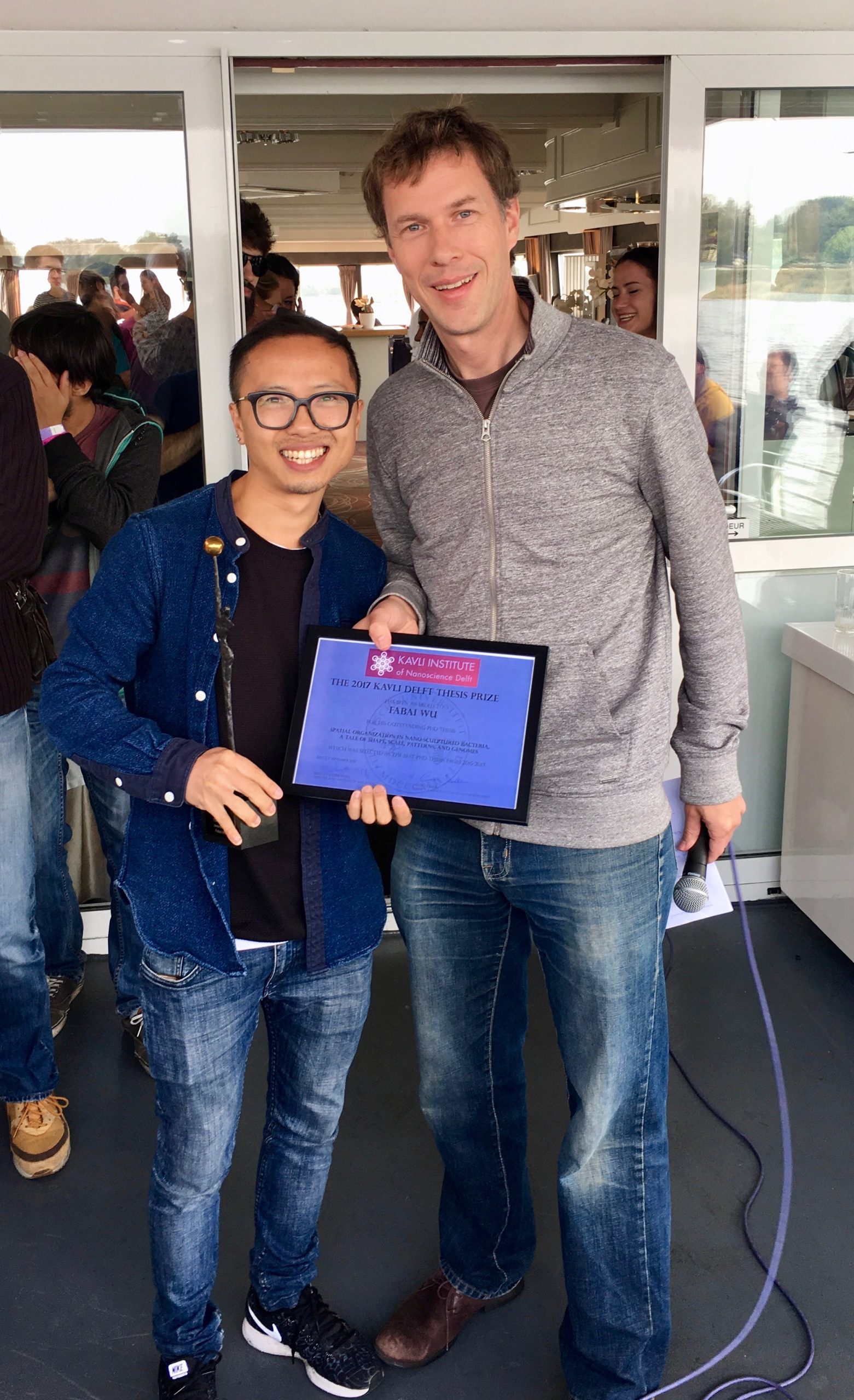Dr Fabai Wu received the Kavli Delft thesis prize for his work on spatial organisation in nano sculptured bacteria. The jury found Wu’s thesis exceptional in quality and productivity.
Wu dived into a very fundamental question which affects all living things. Take cellular division for example, where all doubled chromosome pairs are lined-up perfectly in the middle of the cell before they get drawn to opposite sides of the cell. Apparently, there is a lot of internal organisation going on. But how exactly protein networks and chromosomes ‘feel’ the cell boundaries and organise their actions accordingly were largely unknown.

Wu studied the internal organisation of E.coli bacteria by forcing them to grow in the shape of circles, triangles, squares or rectangles within nanofabricated structures. “Remarkably, the dynamics of protein patterns and the integrity of the chromosomes are not disrupted in these shaped cells,” wrote Wu.
“We showed that these bacteria, despite having anomalous morphologies and large volumes, divide with remarkable robustness and accuracy comparable to normal rod-shaped cells. (…)Taken together, this thesis uncovered various mechanisms underlying the remarkable abilities of protein patterns and genomes to perceive cellular space and orchestrate dynamic actions that enable the propagation of life.”
Fundamental questions, remarkable experiments and a lyrical use of language. Wu’s thesis has it all.
• Fabai Wu, Spatial organization in nano-sculptured bacteria, a tale of shape, scale, patterns, and genomes, PhD thesis supervisor Professor Cees Dekker, 27 October 2015.
Do you have a question or comment about this article?
j.w.wassink@tudelft.nl


Comments are closed.